
Ngaremlengui: The Pristine Heart of Palau
Ngaremlengui, nestled in the lush landscapes of Palau, offers tourists an authentic experience of the country's natural beauty and cultural richness. This serene city is known for its untouched environment and picturesque scenery, making it a perfect getaway for nature lovers and adventurers alike. Explore the verdant forests and hike through trails that lead to stunning waterfalls and hidden caves. Ngaremlengui's unique biodiversity is a haven for birdwatchers and wildlife enthusiasts. The pristine rivers and streams provide excellent spots for kayaking and fishing, offering a peaceful retreat from the bustling city life. Ngaremlengui also boasts a deep cultural heritage. Visitors can immerse themselves in the traditions of the local Palauan community, experiencing the warmth and hospitality of the residents. Traditional crafts, dance, and music provide a glimpse into the rich history and customs that have been preserved over generations. Whether you're seeking adventure or tranquility, Ngaremlengui offers a unique blend of both, ensuring an unforgettable experience for every visitor.
Local tips in Ngaremlengui
- Bring sturdy hiking shoes for exploring the trails and waterfalls.
- Visit local markets to experience traditional Palauan crafts and delicacies.
- Hire a local guide to learn about the unique flora and fauna of the region.
- Respect local customs and traditions when visiting cultural sites.
- Carry insect repellent, especially during forest hikes.
Ngaremlengui: The Pristine Heart of Palau
Ngaremlengui, nestled in the lush landscapes of Palau, offers tourists an authentic experience of the country's natural beauty and cultural richness. This serene city is known for its untouched environment and picturesque scenery, making it a perfect getaway for nature lovers and adventurers alike. Explore the verdant forests and hike through trails that lead to stunning waterfalls and hidden caves. Ngaremlengui's unique biodiversity is a haven for birdwatchers and wildlife enthusiasts. The pristine rivers and streams provide excellent spots for kayaking and fishing, offering a peaceful retreat from the bustling city life. Ngaremlengui also boasts a deep cultural heritage. Visitors can immerse themselves in the traditions of the local Palauan community, experiencing the warmth and hospitality of the residents. Traditional crafts, dance, and music provide a glimpse into the rich history and customs that have been preserved over generations. Whether you're seeking adventure or tranquility, Ngaremlengui offers a unique blend of both, ensuring an unforgettable experience for every visitor.
When is the best time to go to Ngaremlengui?
Iconic landmarks you can’t miss
Belau National Museum
Explore the Belau National Museum and uncover the vibrant history and culture of Palau through its remarkable exhibits and artifacts.
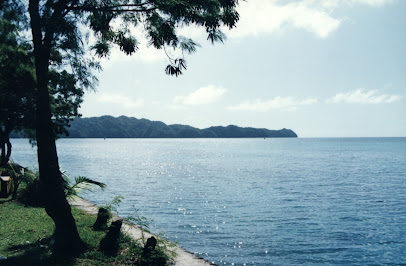
Long Island Park
Experience the natural beauty and tranquility of Long Island Park in Koror, Palau, a perfect destination for relaxation and outdoor activities.
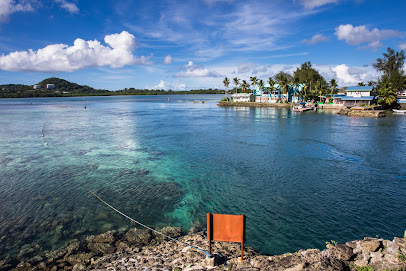
Japan-Palau Friendship Bridge
Discover the breathtaking Japan-Palau Friendship Bridge, a stunning architectural marvel that symbolizes the deep connection between cultures and offers picturesque views.
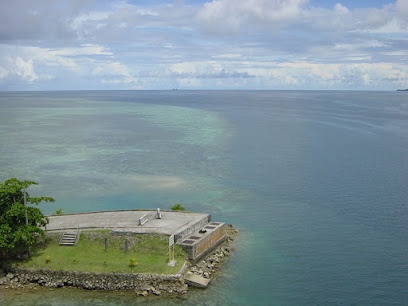
Dolphins Pacific
Experience the magic of swimming with dolphins at Dolphins Pacific in Koror, Palau – a unique aquarium and conservation-focused tourist attraction.
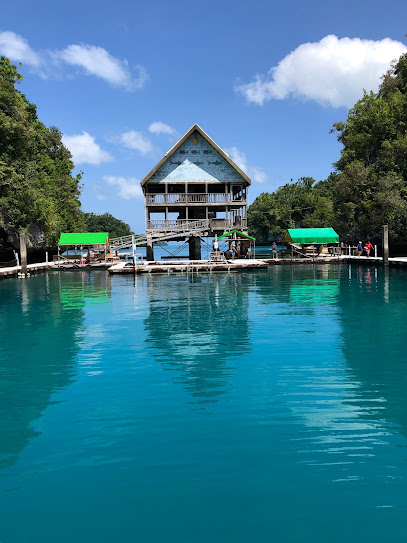
Surangel and Sons Co. - Koror
Discover the vibrant shopping experience at Surangel and Sons Co., the heart of local culture in Koror, Palau, with unique products and delicious food.
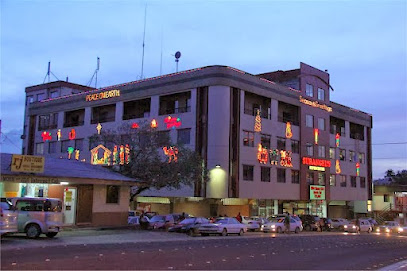
Palau Aquarium
Explore the vibrant marine life of Palau at the Palau Aquarium, a must-visit attraction in Koror showcasing unique aquatic ecosystems.
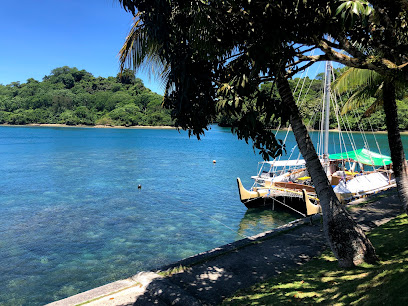
Okemii Deli & Internet Cafe
Discover the flavors of Palau at Okemii Deli & Internet Cafe, where delicious cuisine meets a cozy atmosphere and reliable internet access.
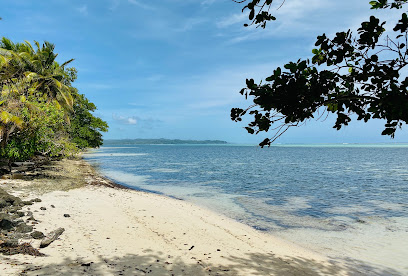
Etpison Museum
Discover the heritage of Palau at the Etpison Museum, showcasing local culture through fascinating artifacts and historical exhibits.
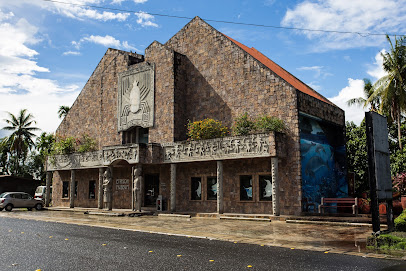
King Palace
Savor the flavors of Palau at King Palace, where local ingredients and international cuisine create an unforgettable dining experience.
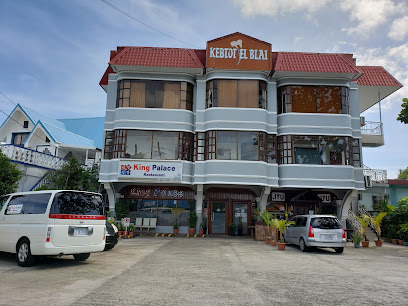
Badrulchau Stone Monoliths
Explore the ancient Badrulchau Stone Monoliths in Ngarchelong, Palau – a captivating site rich in history and stunning natural beauty.
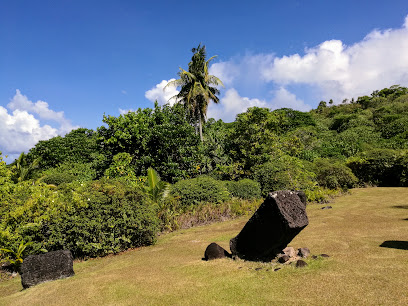
Palau National Capital
Discover the Palau National Capital, where governance meets breathtaking natural beauty and rich cultural heritage in Melekeok.
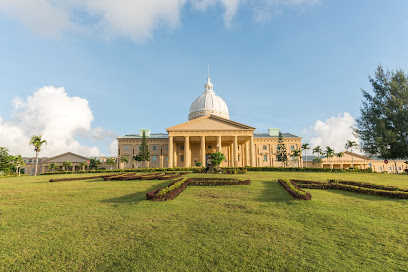
Peleliu Peace Memorial Park
Discover the rich history and serene beauty of Peleliu Peace Memorial Park, a must-visit site honoring the sacrifices of World War II veterans.
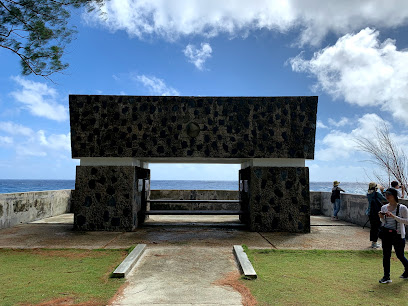
World War II Japanese Communications Center
Discover the historical significance of the World War II Japanese Communications Center in Airai, Palau, a site rich with stories and stunning natural beauty.
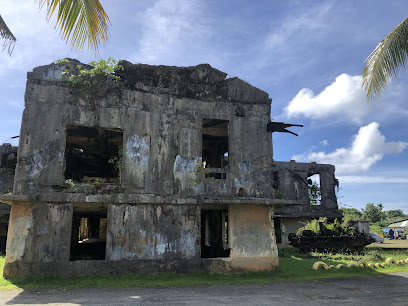
G.A.U. Mechang Lagoon Resort
Experience the enchanting beauty of Palau at G.A.U. Mechang Lagoon Resort, your perfect escape for relaxation and adventure in paradise.
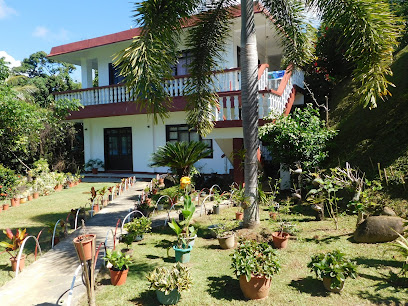
Airai Bai
Experience the serene beauty of Airai Bai, a stunning tourist attraction in Palau, rich in natural wonders and local culture.
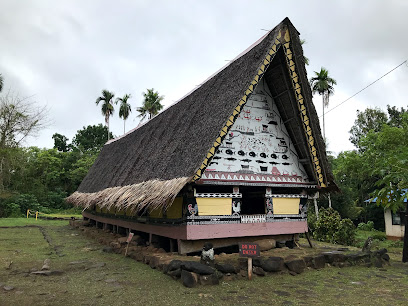
Unmissable attractions to see
Milky Way
Experience the breathtaking beauty of Milky Way in Palau, where crystal-clear waters and vibrant marine life await your exploration.
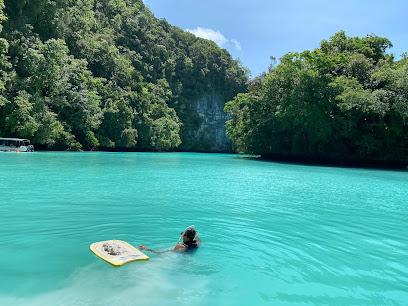
Belau National Museum
Explore the cultural and natural wonders of Palau at the Belau National Museum, where history and heritage come to life in vibrant exhibits.
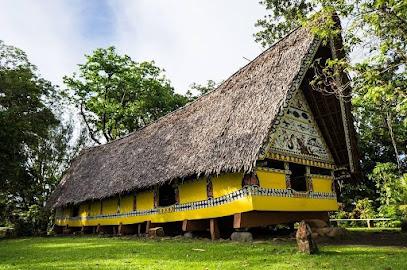
Jellyfish Lake
Explore Jellyfish Lake in Koror, Palau - a mesmerizing lagoon teeming with harmless jellyfish, perfect for swimming and unforgettable nature experiences.
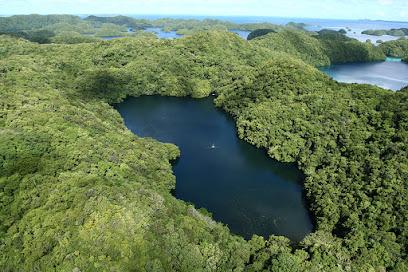
Island Paradise Resort Club
Experience the serene beauty of Island Paradise Resort Club in Koror, Palau, where luxury meets nature in a breathtaking tropical setting.
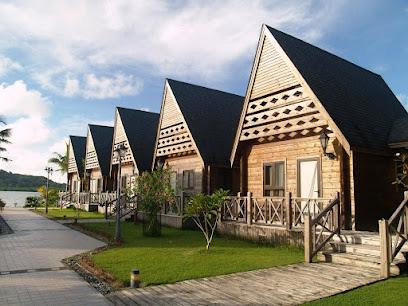
Etpison Museum
Explore the rich cultural heritage of Palau at Etpison Museum, where history and tradition come alive through captivating exhibits and local artifacts.
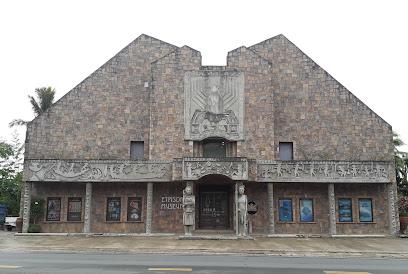
Ngermeaus Island Park
Experience the untouched beauty of Ngermeaus Island Park in Palau, a paradise for nature lovers and adventure seekers with stunning landscapes and rich marine life.
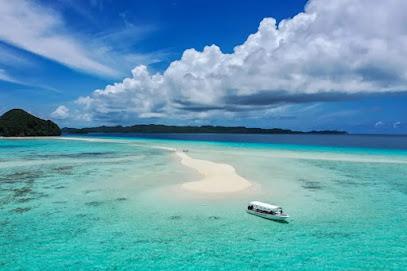
Neco Marine Palau
Explore the wonders of Palau's underwater world with Neco Marine Palau—your go-to dive shop and tour operator for unforgettable marine adventures.
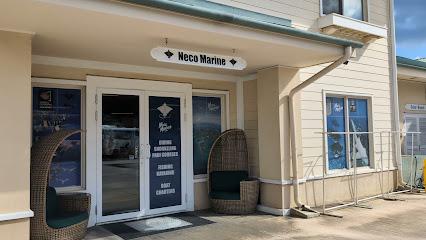
The Rock Islands
Explore the stunning Rock Islands of Palau, a tropical paradise with breathtaking landscapes, vibrant marine life, and rich cultural heritage.
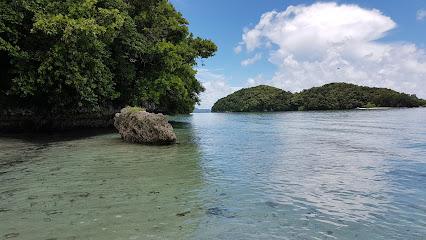
Ucheliungs
Experience the breathtaking beauty and rich culture at Ucheliungs, a serene tourist attraction in Koror, Palau offering adventure and relaxation.
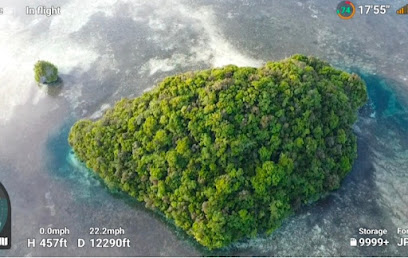
パラオ松島
Explore the breathtaking landscapes and rich culture of Palau, where adventure meets tranquility in the heart of the Pacific.
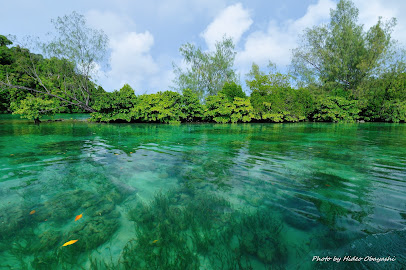
Babelomekang
Explore Babelomekang, a stunning tourist attraction in Koror, Palau, where natural beauty meets vibrant local culture for an unforgettable experience.
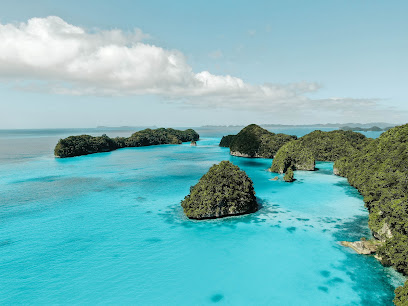
Chiuul
Explore the breathtaking hiking trails of Chiuul in Ngatpang, Palau, where nature's beauty awaits every adventurer and nature lover.

Splash Palau
Discover the aquatic wonders of Splash Palau, where adventure meets breathtaking beauty in the heart of Koror's pristine waters.

Essential places to dine
Elilai Seaside Dining
Experience exquisite fine dining with breathtaking ocean views at Elilai Seaside Dining in Koror, Palau.
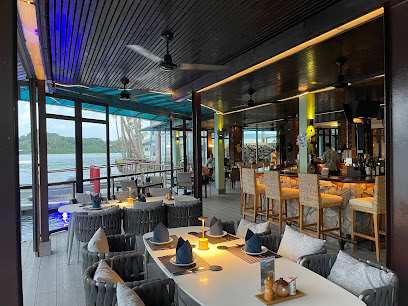
Tori Tori
Experience authentic Japanese cuisine at Tori Tori in Koror—where tradition meets tropical paradise.
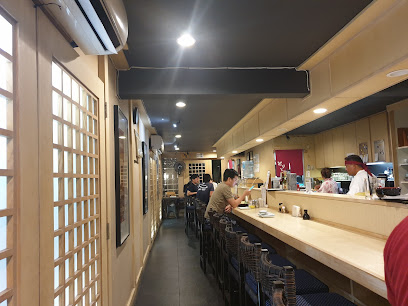
The Canoe House
Experience vibrant dining at The Canoe House in Koror, Palau - where delicious food meets lively entertainment.
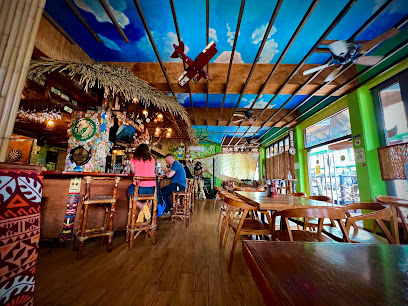
Rock Island Cafe
Experience the vibrant flavors and welcoming atmosphere at Rock Island Cafe in Koror, Palau - A culinary journey awaits!
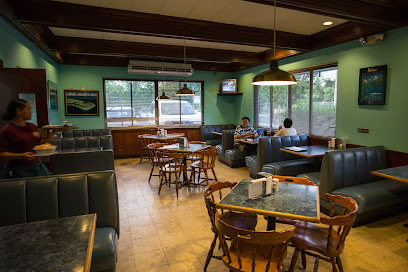
Coffee Berry
Discover authentic Palauan cuisine at Coffee Berry, where local flavors meet inviting café vibes in Koror.
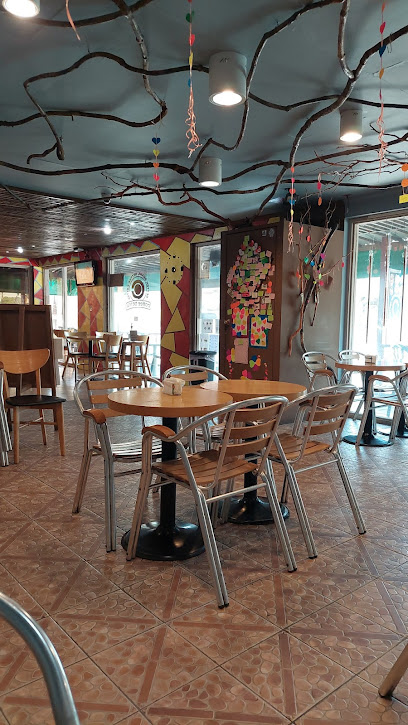
Palm Bay Bistro
Experience authentic Pan Asian cuisine at Palm Bay Bistro in Malakal – where every dish tells a story of flavor and tradition.
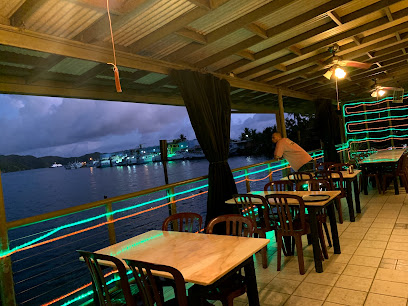
Suriyothai
Experience authentic Thai flavors at Suriyothai Restaurant in Koror - a culinary delight amidst the beauty of Palau.
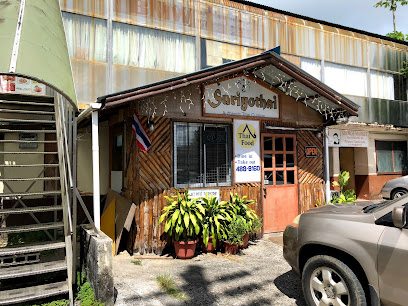
Carp Restaurant
Discover authentic local flavors at Carp Restaurant in Koror, Palau – where every meal tells a story of culinary tradition.
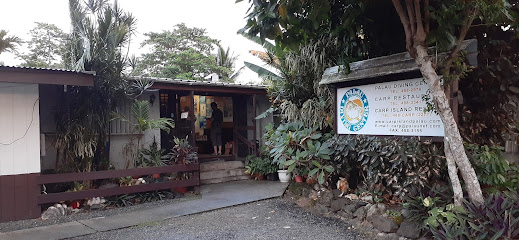
7 Eat Restaurant
Experience authentic Palauan flavors at 7 Eat Restaurant in Koror - a must-visit dining destination for travelers seeking local culinary delights.
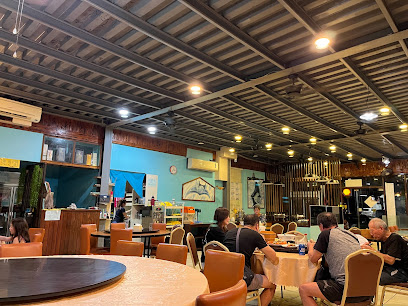
Palau Umi Korean and Japanese Cuisine
Discover the exquisite blend of Korean and Japanese flavors at Palau Umi in Koror—an unmissable culinary experience for all food lovers.
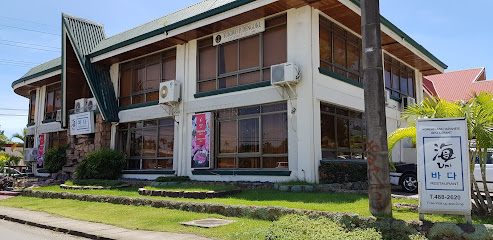
Okemii Deli & Internet Cafe
Experience authentic Palauan flavors at Okemii Deli & Internet Cafe – where great food meets friendly vibes in Koror.
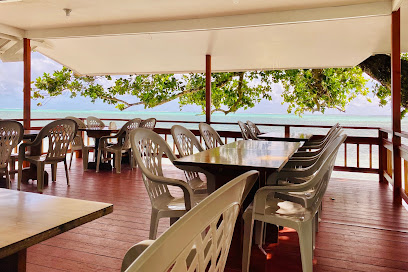
Red Rooster Cafe
Discover the vibrant culinary scene at Red Rooster Cafe in Koror, Palau – where local flavors meet international flair.
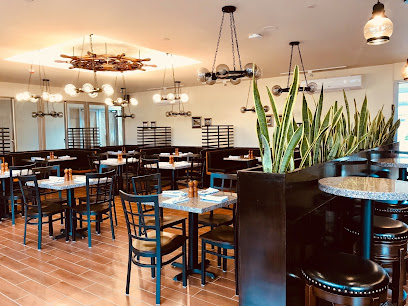
King Palace
Indulge in exquisite flavors at King Palace in Koror, where authentic cuisine meets warm hospitality for an unforgettable dining experience.
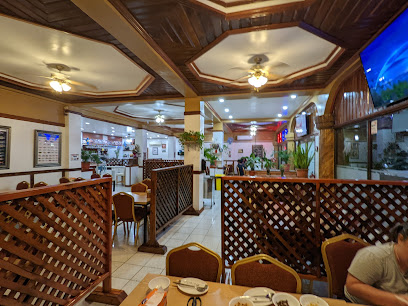
MJ Restaurant
Discover authentic Palauan cuisine at MJ Restaurant in Koror – a diner celebrated for its friendly service and vibrant local flavors.
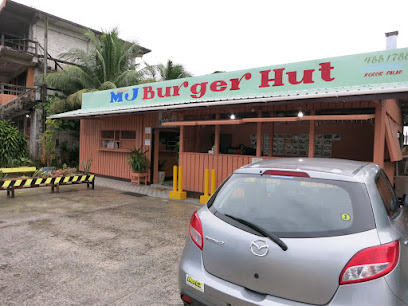
Krämer’s Bar and Restaurant
Experience the authentic flavors of Palau at Krämer’s Bar and Restaurant, where fresh ingredients meet warm hospitality in an idyllic setting.
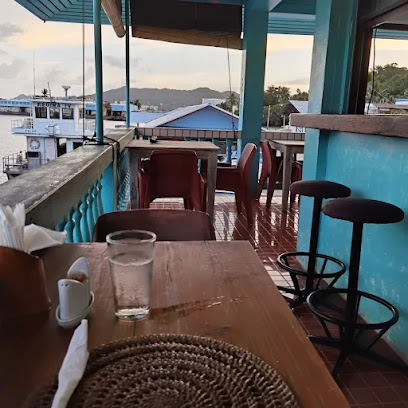
Markets, malls and hidden boutiques
Surangel and Sons Co. - Koror
Explore a blend of local craftsmanship and global brands at Surangel and Sons Co. in Koror, a must-visit shopping destination in Palau.
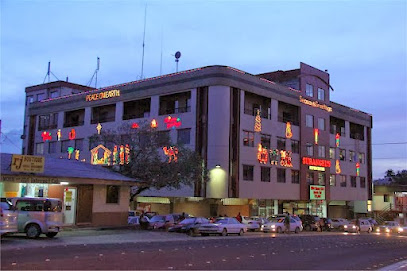
Ben Franklin Department Store
Explore Ben Franklin Department Store in Palau for a unique shopping experience featuring local goods, souvenirs, and everyday essentials amidst a friendly atmosphere.
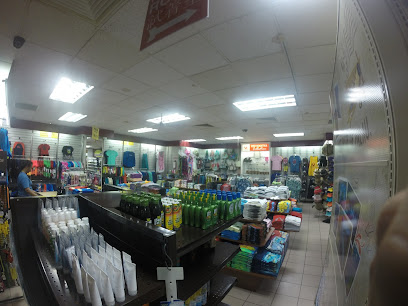
EXILE
Explore EXILE in Koror, Palau – a chic clothing store offering unique styles that blend local culture with modern fashion for every traveler.
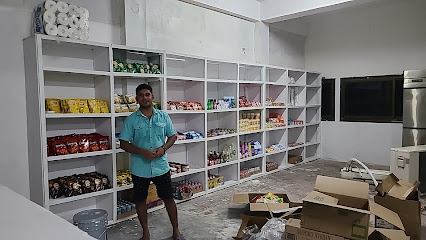
Amel Store
Explore Amel Store in Ngerulmud, Palau, for a delightful grocery shopping experience featuring local flavors and friendly service.
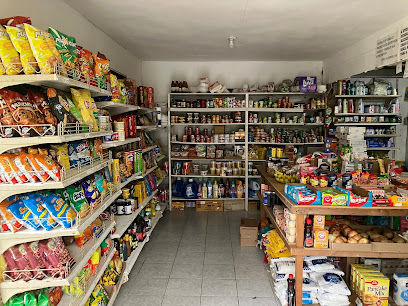
Wilson's Store
Experience local flavors at Wilson's Store, a grocery gem in Koror, Palau, offering fresh produce, local delicacies, and international treats.
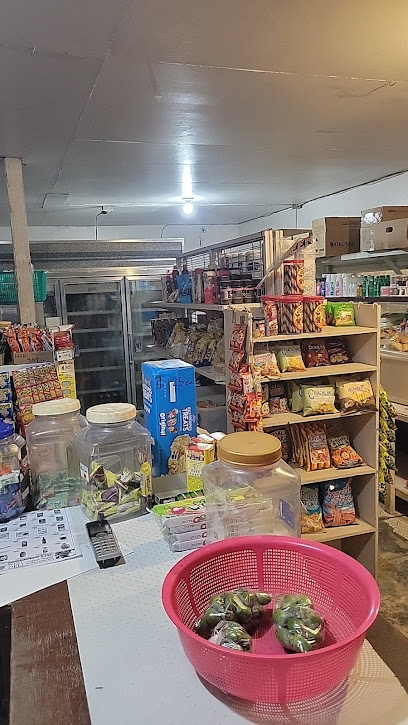
Globus Palau
Explore Globus Palau, a hidden gem in Koror, offering exquisite home goods and local crafts that embody the spirit of Palauan culture.
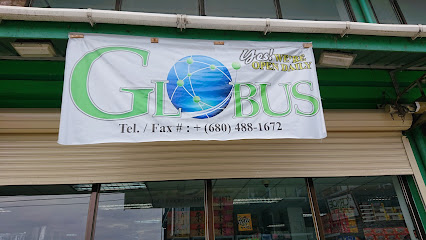
Lius Gift Shop
Discover unique souvenirs, delicious treats, and beauty products at Lius Gift Shop in Koror, Palau – a perfect stop for every traveler.
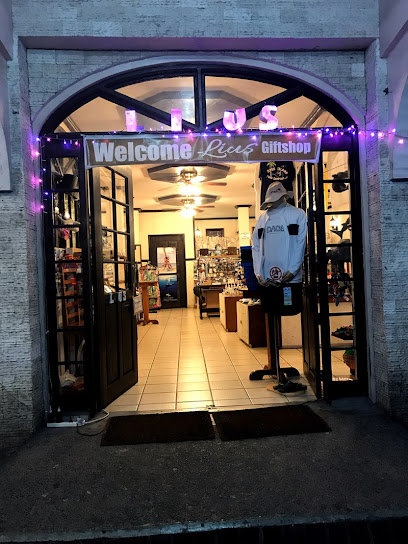
E&A Store
Discover unique local products and a vibrant shopping atmosphere at E&A Store in Melekeok, Palau, a perfect spot for souvenirs and essentials.
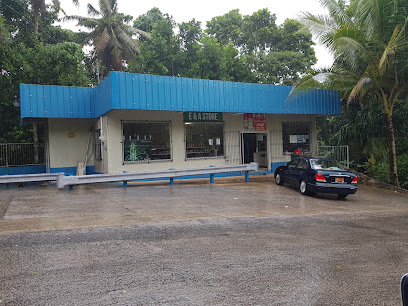
Long Beach
Experience the convenience of Long Beach in Ngaraard, Palau - your one-stop shop for snacks, deli treats, and local essentials.
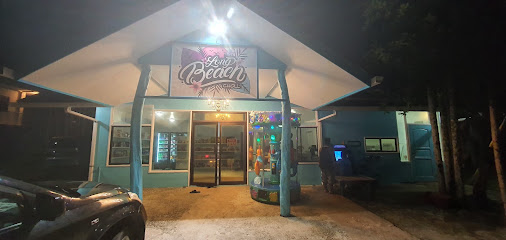
Palau Central Trading Co.
Explore a vibrant gift shop in Koror, Palau, offering local art, gourmet groceries, and unique souvenirs that capture the essence of island culture.
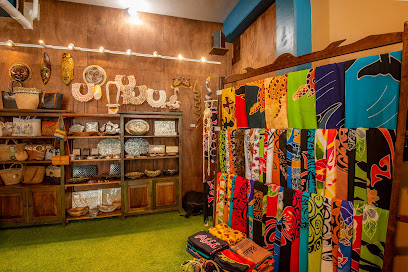
Capital Seaside Store
Explore the Capital Seaside Store in Melekeok, Palau - your gateway to authentic local crafts and delicious island delicacies.
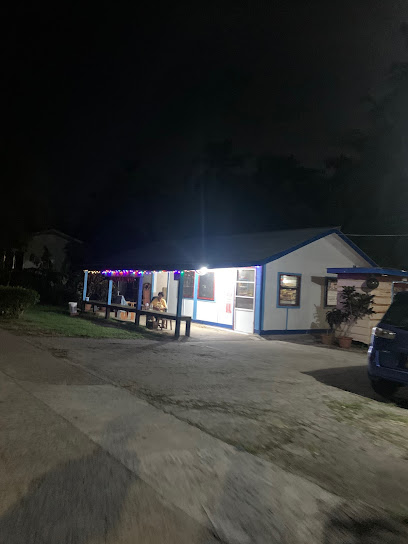
Jello's Fashion II
Explore Koror with ease at Jello's Fashion II, your go-to convenience store for snacks, drinks, and essential goods, all at great prices.
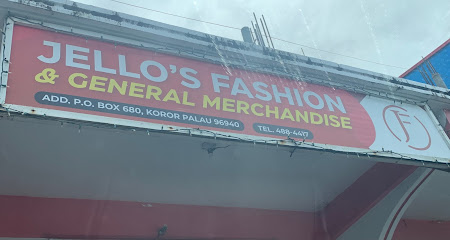
TSA Paradise Store
TSA Paradise Store: Your essential stop for convenience and local goods in Ngarchelong, Palau.

D.A store
Explore unique flavors and essentials at D.A Store, the go-to grocery store in Meyungs, Koror, Palau, for locals and tourists alike.
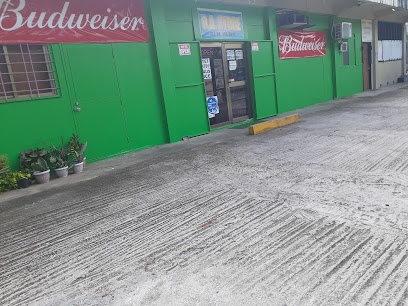
NEW MARKET STORE
Experience local flavors and fresh produce at New Market Store in Meyungs, Palau - your go-to grocery stop for unique island treats.
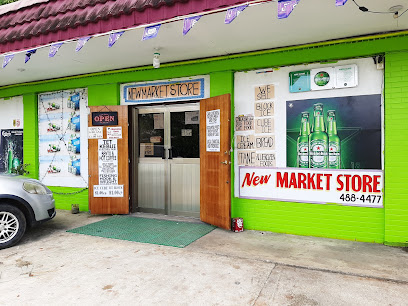
Essential bars & hidden hideouts
Drop Off Bar and Grill
Discover the culinary delights at Drop Off Bar and Grill, a seaside gem in Koror, Palau, serving fresh seafood and local cuisine.
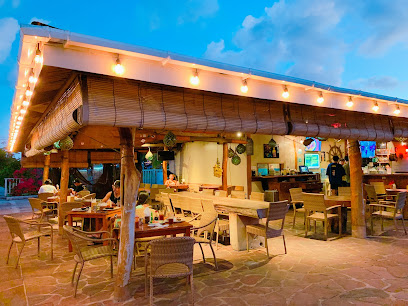
Elilai Seaside Dining
Discover the culinary excellence at Elilai Seaside Dining in Koror, Palau, where fresh seafood meets breathtaking ocean views for a truly memorable dining experience.
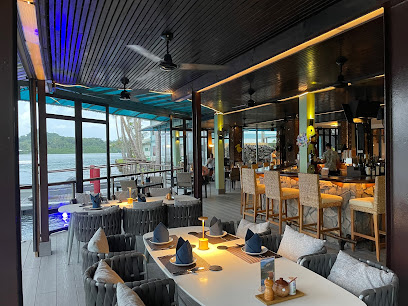
The Canoe House
Experience the vibrant flavors and lively atmosphere of The Canoe House, a must-visit bar and restaurant in Koror, Palau.
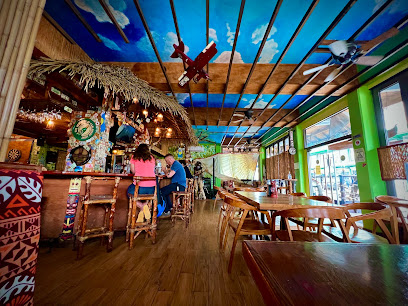
Okemii Deli & Internet Cafe
Savor local and international delights at Okemii Deli & Internet Cafe in Koror, Palau, where cuisine meets connectivity.
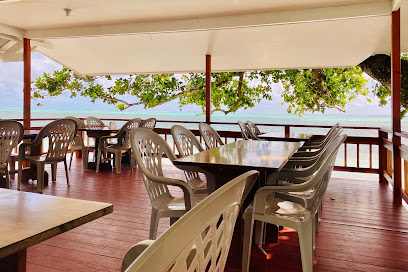
Red Rooster Cafe
Discover the vibrant culinary scene of Palau at Red Rooster Cafe, where local flavors meet a warm, inviting atmosphere.
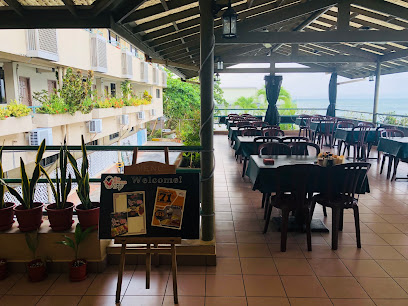
Krämer’s Bar and Restaurant
Discover the flavors of Palau at Krämer's Bar and Restaurant, where local cuisine meets a warm, inviting atmosphere perfect for every occasion.
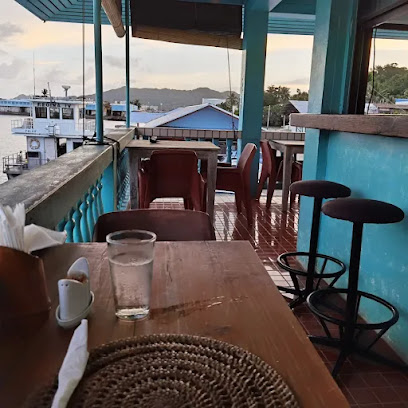
Riptide Beach Bar & Grill
Experience the flavors of Palau at Riptide Beach Bar & Grill, where tasty dishes and stunning ocean views come together for an unforgettable dining experience.
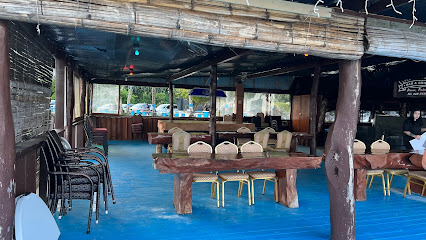
Barracuda Restaurant
Experience the best of Palauan cuisine at Barracuda Restaurant in Koror, where local flavors meet stunning views.
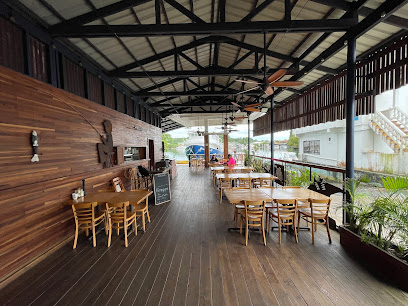
Hungry Marlin Restaurant & Bar at COVE Resort Palau
Experience the flavors of Palau at Hungry Marlin Restaurant & Bar, where fresh seafood meets breathtaking views in a vibrant atmosphere.
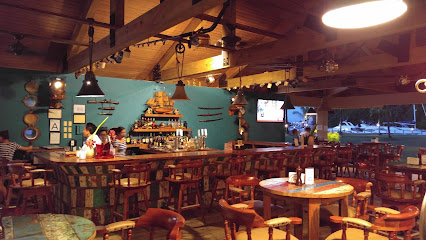
Bottom Time Bar and Grill
Discover the flavors of Palau at Bottom Time Bar and Grill, where fresh seafood meets stunning island views in a laid-back atmosphere.
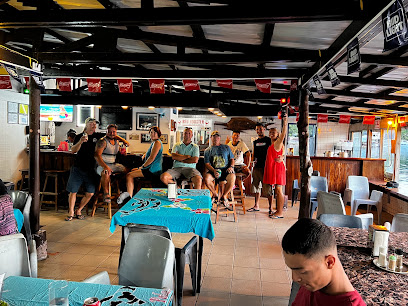
Jungle Bar
Experience the tropical flavors of Palau at Jungle Bar, where vibrant ambiance meets authentic local cuisine in the heart of Koror.
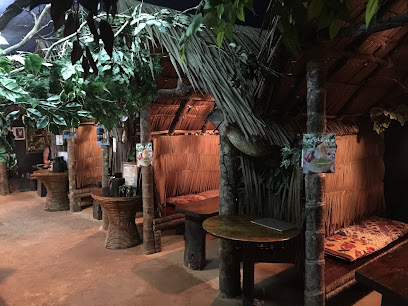
Weltz Bar at the Palasia Hotel
Experience the vibrant nightlife of Koror at Weltz Bar, located in the Palasia Hotel, offering exquisite drinks and stunning views.
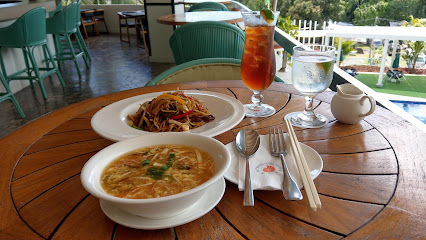
Club Gorgeous
Discover the lively nightlife of Koror at Club Gorgeous, where cocktails and culture blend for an unforgettable experience in Palau.
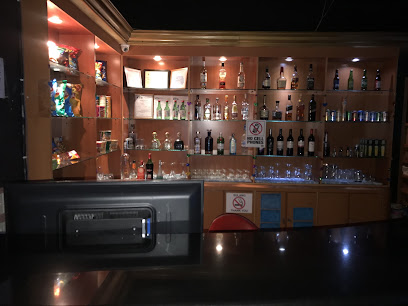
The Republic Restaurant & Bar
Experience the vibrant atmosphere and local flavors at The Republic Restaurant & Bar in Koror, Palau, the perfect spot for relaxation and indulgence.

Local Phrases
-
- HelloAlii
[ah-lee] - GoodbyeKmal mesulang
[kem-al me-soo-lang] - YesOu
[oh] - NoChelit
[cheh-leet] - Please/You're welcomeCherril a kemiu
[cher-ril ah kem-yoo] - Thank youMesulang
[me-soo-lang] - Excuse me/SorryUngil tutau
[oon-geel too-tow] - How are you?Chuabang ngarngii?
[choo-ah-bahng ngar-nghee] - Fine. And you?Meral ngii. E kemiu?
[meh-rall nghee. eh kem-yoo] - Do you speak English?Meiisiu a ngii ngarngii er a ngesechel?
[may-see-oo ah nghee ngar-nghee er ah ngheh-seh-chell] - I don't understandKmal meral ngii a ngarngii
[kem-al meh-rall nghee ah ngar-nghee]
- HelloAlii
-
- I'd like to see the menu, pleaseUnga chetuabang a ngai a lekang er a rengalek a chad er kemiu
[oon-gah cheh-too-ah-bahng ah ngai ah leh-kahng er ah reng-ah-lehk ah chahd er kem-yoo] - I don't eat meatChelit a ngai a dechil
[cheh-leet ah ngai ah deh-cheel] - Cheers!Ungil tutau!
[oon-geel too-tow] - I would like to pay, pleaseUnga chetuabang a ngai a kmal omerellel er kemiu
[oon-gah cheh-too-ah-bahng ah ngai ah kem-al oh-meh-rel-lehl er kem-yoo]
- I'd like to see the menu, pleaseUnga chetuabang a ngai a lekang er a rengalek a chad er kemiu
-
- Help!Melechuch
[meh-leh-chooch] - Go away!Kmal mesulang
[kem-al me-soo-lang] - Call the Police!Mei a rur ngarngii
[may ah roor ngar-nghee] - Call a doctor!Mei a rur chad
[may ah roor chahd] - I'm lostChelit a ngai a bechesiich
[cheh-leet ah ngai ah beh-cheh-see-ich] - I'm illChelit a ngai a bechesiich
[cheh-leet ah ngai ah beh-cheh-see-ich]
- Help!Melechuch
-
- I'd like to buy...Unga chetuabang a ngai a beluu...
[oon-gah cheh-too-ah-bahng ah ngai ah beh-loo] - I'm just lookingUnga chetuabang a ngai a meral ngii
[oon-gah cheh-too-ah-bahng ah ngai ah meh-rall nghee] - How much is it?Kmal bebil a kmal meral?
[kem-al beh-beel ah kem-al meh-rall] - That's too expensiveChelit a kmal betok
[cheh-leet ah kem-al beh-tohk] - Can you lower the price?Moiung a kmal betok
[moh-yoong ah kem-al beh-tohk]
- I'd like to buy...Unga chetuabang a ngai a beluu...
-
- What time is it?Kmal bebil a kmal ngelekel?
[kem-al beh-beel ah kem-al ngel-ek-ell] - It's one o'clockKmal ngelekel a kmal dirkakl
[kem-al ngel-ek-ell ah kem-al deer-kah-kl] - Half past (10)Kmal ngelekel a kmal dirkakl
[kem-al ngel-ek-ell ah kem-al deer-kah-kl] - MorningMereched a diel
[meh-reh-ched ah dee-ell] - AfternoonMereched a beluu
[meh-reh-ched ah beh-loo] - EveningMereched a beluu
[meh-reh-ched ah beh-loo] - YesterdayNgkora klalii
[ngkoh-rah klah-lee] - TodayA rur
[ah roor] - TomorrowNgkora klalii
[ngkoh-rah klah-lee] - 1Rechad
[reh-chahd] - 2Dirkakl
[deer-kah-kl] - 3Tilu
[tee-loo] - 4Esekum
[eh-seh-koom] - 5Klimakl
[klee-mah-kl] - 6Klukuk
[kloo-kook] - 7Kedam
[keh-dahm] - 8Kedilakl
[keh-dee-lah-kl] - 9Kedungur
[keh-doong-oor] - 10Kedungur
[keh-doong-oor]
- What time is it?Kmal bebil a kmal ngelekel?
-
- Where's a/the...?Mei a kmal klechad?
[may ah kem-al kleh-chahd] - What's the address?Kmal bebil a olab a kmal klechad?
[kem-al beh-beel ah oh-lahb ah kem-al kleh-chahd] - Can you show me (on the map)?Moiung a klukuk a kmal klechad?
[moh-yoong ah kloo-kook ah kem-al kleh-chahd] - When's the next (bus)?Ngarngii a kmal klechad?
[ngar-nghee ah kem-al kleh-chahd] - A ticket (to ....)A ngerang a klukuk
[ah ngeh-rahng ah kloo-kook]
- Where's a/the...?Mei a kmal klechad?
History of Ngaremlengui
-
Ngaremlengui, like much of Palau, was originally settled by Austronesian-speaking peoples. Evidence suggests that these early settlers arrived around 3,000 years ago, bringing with them the skills of navigation, fishing, and horticulture. They established small villages, practiced subsistence farming, and engaged in fishing, which remains a staple of the local diet to this day.
-
Ngaremlengui, like other states in Palau, was traditionally governed by a chieftain system. The highest title in the region is the 'Rengulbai', who played a crucial role in societal decision-making, conflict resolution, and maintaining peace and order. The traditional council of chiefs, known as the 'Rubekul Belau', continues to hold significant cultural importance.
-
In the early 20th century, Palau, including Ngaremlengui, came under Japanese administration following World War I. The Japanese influence is still visible in various aspects of local culture, from cuisine to infrastructure. During this period, significant developments were made in education and agriculture, although it was also a time marked by hardship and forced labor for many Palauans.
-
World War II had a profound impact on Ngaremlengui and the rest of Palau. The islands were strategically important and saw significant military action, particularly during the Battle of Peleliu. The war left behind numerous relics and historical sites, including bunkers and plane wrecks, which can still be explored today. The war also led to a shift in political dynamics, eventually paving the way for Palau's transition towards independence.
-
After World War II, Palau came under the administration of the United States as part of the Trust Territory of the Pacific Islands. Ngaremlengui, along with the rest of Palau, experienced significant changes during this period, including improvements in healthcare, education, and infrastructure. Palau eventually gained independence in 1994, becoming one of the world's youngest nations. Ngaremlengui's role in this journey highlights the resilience and determination of its people.
-
Ngaremlengui is known for its rich cultural heritage, which includes traditional dance, music, and art. Efforts to preserve and promote these cultural practices are evident in community events and educational programs. The Bai, a traditional meeting house, is a significant cultural landmark in Ngaremlengui. These structures are intricately decorated and serve as a testament to the region's artistic and architectural heritage.
-
Today, Ngaremlengui balances the preservation of its historical and cultural heritage with modern development. The area is known for its lush landscapes, including dense forests and pristine rivers, making it a popular destination for eco-tourism. The community continues to thrive, valuing both tradition and progress as it moves forward in the 21st century.
Ngaremlengui Essentials
-
Ngaremlengui is located on the western side of Babeldaob, the largest island in Palau. The nearest international airport is Roman Tmetuchl International Airport (ROR), located in Airai, approximately 35 kilometers from Ngaremlengui. From the airport, you can take a taxi or arrange for a shuttle service through your accommodation. The drive typically takes around 45 minutes to an hour. Alternatively, you can rent a car at the airport for more flexibility during your stay.
-
Ngaremlengui is a relatively small area, and many of its attractions are best explored by car. Car rentals are available at the airport and in Koror. Taxis are available but may be limited, so it is advisable to arrange transportation in advance. Public buses do not operate frequently in this area, so renting a car is the most convenient option for getting around. Bicycles can also be a fun way to explore the local scenery if you're up for some exercise.
-
The official currency of Palau is the United States Dollar (USD). Credit cards are accepted at most hotels, restaurants, and larger shops, but it is advisable to carry cash, especially when visiting smaller establishments and more remote areas. ATMs are available in Koror, so it is recommended to withdraw sufficient cash before heading to Ngaremlengui.
-
Ngaremlengui is generally a safe destination for tourists. However, like any travel destination, it is advisable to take standard precautions. Avoid walking alone at night in unfamiliar areas and keep an eye on your belongings in crowded places. There are no specific high-crime areas targeting tourists, but it is always best to stay vigilant and aware of your surroundings.
-
In case of emergency, dial 911 for immediate assistance. The nearest medical facilities are located in Koror, which is about a 45-minute drive away. It is recommended to have travel insurance that covers medical emergencies. For minor health issues, there are pharmacies in Koror where you can purchase over-the-counter medications. Additionally, keep the contact information of your embassy or consulate handy in case you need further assistance.
-
Fashion: Do dress modestly, especially when visiting villages and cultural sites. Avoid wearing overly revealing clothing. Religion: Do respect local customs and traditions. When visiting religious sites, dress conservatively and behave respectfully. Public Transport: Do be patient, as public transport can be infrequent. Don't expect Western-style punctuality. Greetings: Do greet locals with a friendly 'Alii' (hello). A handshake is a common form of greeting. Eating & Drinking: Do try local dishes and accept food offerings graciously. Don't refuse hospitality, as it is considered impolite.
-
To experience Ngaremlengui like a local, visit the traditional Bai (meeting houses) and engage with the community. Participate in local events and festivals to learn about Palauan culture and traditions. Don’t miss the opportunity to explore the natural beauty of the area, including its lush forests and pristine rivers. For a unique experience, join a guided tour to learn about the local flora and fauna from knowledgeable guides.
Trending Landmark in Ngaremlengui
-
Belau National Museum
-
Long Island Park
-
Japan-Palau Friendship Bridge
-
Dolphins Pacific
-
Surangel and Sons Co. - Koror
-
Palau Aquarium
-
Okemii Deli & Internet Cafe
-
Etpison Museum
-
King Palace
-
Badrulchau Stone Monoliths
-
Palau National Capital
-
Peleliu Peace Memorial Park
-
World War II Japanese Communications Center
-
G.A.U. Mechang Lagoon Resort
-
Airai Bai
Nearby Cities to Ngaremlengui
-
Things To Do in Melekeok
-
Things To Do in Ngatpang
-
Things To Do in Ngardmau
-
Things To Do in Ngerulmud
-
Things To Do in Ngchesar
-
Things To Do in Ngaraard
-
Things To Do in Airai
-
Things To Do in Koror
-
Things To Do in Koror Town
-
Things To Do in Yap
-
Things To Do in Siargao
-
Things To Do in Davao City
-
Things To Do in Cagayan de Oro
-
Things To Do in Camiguin
-
Things To Do in Bohol






